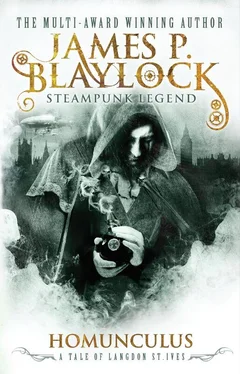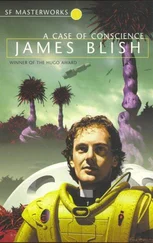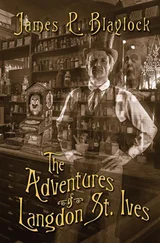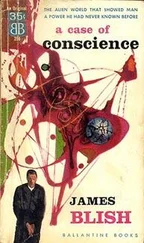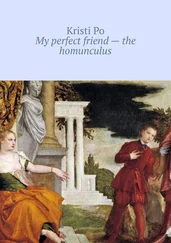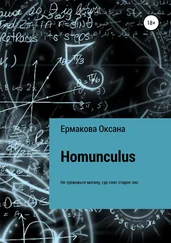James Blaylock - Homunculus
Здесь есть возможность читать онлайн «James Blaylock - Homunculus» весь текст электронной книги совершенно бесплатно (целиком полную версию без сокращений). В некоторых случаях можно слушать аудио, скачать через торрент в формате fb2 и присутствует краткое содержание. Жанр: sf_stimpank, на английском языке. Описание произведения, (предисловие) а так же отзывы посетителей доступны на портале библиотеки ЛибКат.
- Название:Homunculus
- Автор:
- Жанр:
- Год:неизвестен
- ISBN:нет данных
- Рейтинг книги:5 / 5. Голосов: 1
-
Избранное:Добавить в избранное
- Отзывы:
-
Ваша оценка:
- 100
- 1
- 2
- 3
- 4
- 5
Homunculus: краткое содержание, описание и аннотация
Предлагаем к чтению аннотацию, описание, краткое содержание или предисловие (зависит от того, что написал сам автор книги «Homunculus»). Если вы не нашли необходимую информацию о книге — напишите в комментариях, мы постараемся отыскать её.
Homunculus — читать онлайн бесплатно полную книгу (весь текст) целиком
Ниже представлен текст книги, разбитый по страницам. Система сохранения места последней прочитанной страницы, позволяет с удобством читать онлайн бесплатно книгу «Homunculus», без необходимости каждый раз заново искать на чём Вы остановились. Поставьте закладку, и сможете в любой момент перейти на страницу, на которой закончили чтение.
Интервал:
Закладка:
The hands of the old evangelist rose slowly over his head, and in them, held for the crowd to appreciate, was a cube of some sort. It was far too dark, despite burning clumps of brush scattered round the green, for Parsons to see clearly what it was — a holy object, no doubt. People pressed in around the evangelist, listening. The starry sky and the distant lights of London winking and glittering on the plain below enlivened the night with a spirit of mysticism.
The evangelist exhorted the crowd. There was an answering shout, a confirmation, it seemed. A scream followed. Hands pointed heavenward. A general shouting arose. Spyglasses were aimed toward where a tiny pinprick of light arced out of the sky, falling toward the Heath and brightening as it fell. The general tumult gave way to an awed silence, broken by the shouting evangelist. “And the name of the star,” he cried, “is Wormwood!”
But the utterance of the last syllable was followed by a sudden shriek as the evangelist catapulted forward off the backs of his supplicants. The box he held over his head sailed some few feet above the green until it was snatched out of the air by a running figure in a broad-brimmed hat, who dashed among the multitude, knocking people aside like billiard balls and racing as a man possessed toward where Parsons stood before the assembled scientists.
“What in the devil is this?” cried Parsons, an utterance that might easily have applied to either mystery — to the glowing orb that plummeted earthward, or to the gibbering, fright-masked lunatic who capered up, yowling at the thing in his hands and lurched to a stop not ten feet in front of the collected Royal Academy. He regarded the cube as if stupefied, betrayed. Parsons could see now that it was built of glass and contained some rattling object. The madman’s mouth worked, gibbering silently. With a sobbing heave, as if the strange cube were perhaps the most inconceivably disheartening thing he’d run across in recent years, he dashed it to the ground, then slumped off unpursued. For the minions of the evangelist, along with the old man himself, watched in growing wonder the thing in the sky — a glowing, spheroid ship, fallen from the stars.
Parsons blinked. He looked at the receding madman. He looked at the approaching starship. He looked at the decayed head, toothy and brown, that rolled to a stop at his feet, peering up at him through empty sockets. Its jaws clacked once, as if in a tired attempt to bite his shoes or to utter some final lamentation. Then it lay still. “What on earth…” murmured Parsons.
St. Ives could once again see Greater London spread out below him, but this time it wasn’t spinning like a top. It lay below like jeweled pinpoints flung along the winding dark ribbon of the Thames. To the west the sky was tinged red with dying sunlight, which quickly deepened to purple then blue-black as his craft dropped toward Hampstead Heath. Behind him lay the uncharted oceans of deep space — oceans traversed by comets and moons and planets and asteroids, the vast and lonely sailing ships that plied the trade lanes among the stars, and among which, for a few brief minutes. St. Ives had maneuvered his little coracle of a star vessel.
But he was destined now for Hampstead Heath. The wonders of the heavens would wait for him, of that there could be little doubt. But the machinations of earthbound villainy would not. His friends at that moment were embroiled in God knew what sorts of dangers and intrigues. St. Ives smiled as he diminished the speed of the craft sliding in toward the fires that dotted the hillsides like beacons above the lights of Hampstead.
The great oval green was thick with people who swirled and parted and fell back. There, he could see, was a knot of people on chairs in a cordoned area — the Royal Academy, without a doubt. And before them — that had to be Parsons. St. Ives angled in toward him, looking in vain for his own companions. But there were horse carts aplenty, and one looked pretty much like another from such lofty heights. The ground sailed up at him. Upturned faces, mouths agape, swam into clarity. St. Ives fingered the levers, toyed with them, eased them this way and that, settling, finally, onto the green, dead center between two roaring fires, with no more jarring than if he’d sailed in on a feather.
He arose, flipped open the hatch, thrust out his head, and was amazed to see, sitting directly in front of the ship, its back turned toward him, the upholstered chair from the house on Wardour Street, still tethered to the ship, the luckless ghoul bound into it by three turns of hempen rope. The thing’s hair stood on end — elevated by the spate of rapid travel through space — and its face was pulpy and bent, as if shoved and pummeled by atmospheric pressures. The ghoul seemed to be staring straightaway toward an open-mouthed Parsons, who held in his right hand, of all things, the severed, diminished head of Joanna Southcote.
St. Ives smiled and nodded at Parsons, who, quite apparently, was going to weep. He’d clearly been affected by the glorious issuance of the craft. St. Ives had underestimated Parsons; that much was certain. What was even more certain was that the members had underestimated St. Ives. Their countenances betrayed them.
“Gentlemen!” cried Langdon St. Ives, having prepared a small speech while cavorting through the upper reaches of the atmosphere. But his speech ended as abruptly as it began, for there arose immediately a furious shouting from the direction of the village of Hampstead, a shouting that climbed the hill like an approaching giant. And there, hovering out of the starry distances, sailed the blimp of Dr. Birdlip, swinging slowly on the breeze, making for Hampstead Heath.
As wonderful as St. Ives’ arrival had been, the approach of the wonderful dirigible diminished it. The Royal Academy pushed past the star vessel in a rush, leaving St. Ives to address the back of the head of the thing in the chair. Duty, thought St. Ives, recalling the point of his journey to the Heath. His friends were somewhere nearby, as were his enemies. Birdlip approached, carrying with him the inheritance of Jack Owlesby — independence for Jack and Dorothy, Sebastian Owlesby’s only respectable legacy. And there would be no end of villains afoot with an eye toward it.
St. Ives was torn. He dared not leave the craft unattended. Who could say what deviltry might be perpetrated against it? Drake, certainly, would attempt to repossess it, Pule to blow it to bits, Shiloh to claim it as a chariot of some peculiar god or another. Still, what could he do? Sit in it? Let the same crowd overrun the blimp, pluck the jewel from their grasp? He bent through the hatch, overbalancing and sliding out onto the riveted shell of the craft, grabbing at a pair of brass protrusions to haul himself free.
The shouting increased in volume. St. Ives slid head first onto the dewy grass of the Heath, then scrambled onto his feet, yanking at his rumpled clothes. A loud crack sounded behind him along with the snap and zing of something ricocheting off the hull of the ship. Another crack rang out, and St. Ives was once again in the grass, scuttling like a lobster around the ship, peering out beneath the lower curve of the thing at a man in the chimney pipe hat — Billy Deener — crouched beneath the spreading limbs of a shadowy oak. A pistol smoked in his hands. Beside him was a horse and wagon, empty, tethered to the tree. Deener took aim with his pistol and stepped forward, as if to stride toward St. Ives in order to flush him out. There could be no doubt that it was murder he intended. And there in the tumult on the Heath he’d get away with it too. They’d find St. Ives stiff as a gaffed fish on the green and half a million Londoners suspect.
St. Ives edged round the far side of the ship. Would it be wise to run, trusting the increasing distance to confound Deener’s aim? He peeked out and a shot banged off the hull of the ship, the bullet singing past his ear. St. Ives contracted like a startled snail. He could, perhaps, clamber into the ship, shut the hatch, and sail away, but the man would be on him like a dog — St. Ives would be found murdered, dangling from the hatch, exterminated in a sorry effort to flee. It was run or nothing. Zigzag — that was the ticket. He’d dash away toward a far stand of trees. He’d keep the ship between them so that Deener would have to fire past it.
Читать дальшеИнтервал:
Закладка:
Похожие книги на «Homunculus»
Представляем Вашему вниманию похожие книги на «Homunculus» списком для выбора. Мы отобрали схожую по названию и смыслу литературу в надежде предоставить читателям больше вариантов отыскать новые, интересные, ещё непрочитанные произведения.
Обсуждение, отзывы о книге «Homunculus» и просто собственные мнения читателей. Оставьте ваши комментарии, напишите, что Вы думаете о произведении, его смысле или главных героях. Укажите что конкретно понравилось, а что нет, и почему Вы так считаете.
